New Survey Explores Parent Concerns on Social Media Usage and Absenteeism
The first few weeks of each school year bring fresh excitement and fresh anxieties. With school officially underway, this is an important time to pause and take the pulse of Americans and parents on K-12 education. What concerns are at the forefront of parents’ minds in these early days of the 2023-24 academic year? The first challenge for today’s school parents may be keeping students in the classroom and off their phones.
In partnership with Morning Consult, EdChoice surveyed a nationally representative sample of American adults 18 and older (N = 2,258) from September 12-14, 2023. With additional sampling, we obtained responses from 1,315 parents of children currently in K-12 education.
We asked a variety of questions about K-12 education, covering topics from preferred teacher traits to opinions toward school choice policies. This month, we also introduced several new questions focused on absenteeism, student social media use, and school mental health services.
Read the full report, and here are seven key takeaways:
1. Half of parents say they are extremely or very concerned about the impact of social media on children’s mental health. The general public is even more worried by the impact of social media use on children, with 58 percent of adults expressing strong concern. These intense concerns align with parents’ observations of their children’s frequent social media use. About one third of K-12 parents (29%) say their children use social media extremely or very often. This number is higher among parents of older children, with 37 percent of middle school parents and half (49%) of high school parents reporting that their children use social media often.
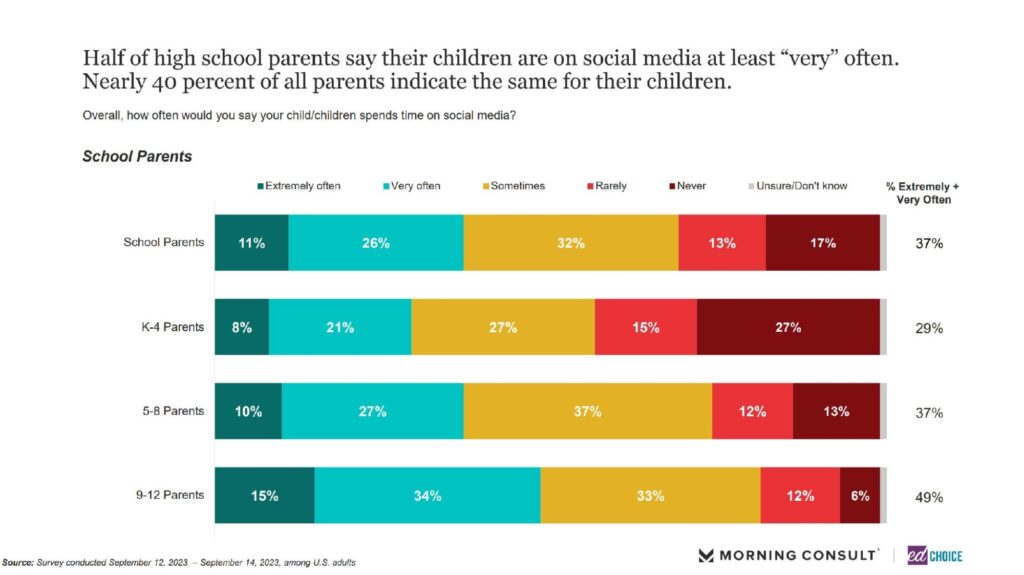
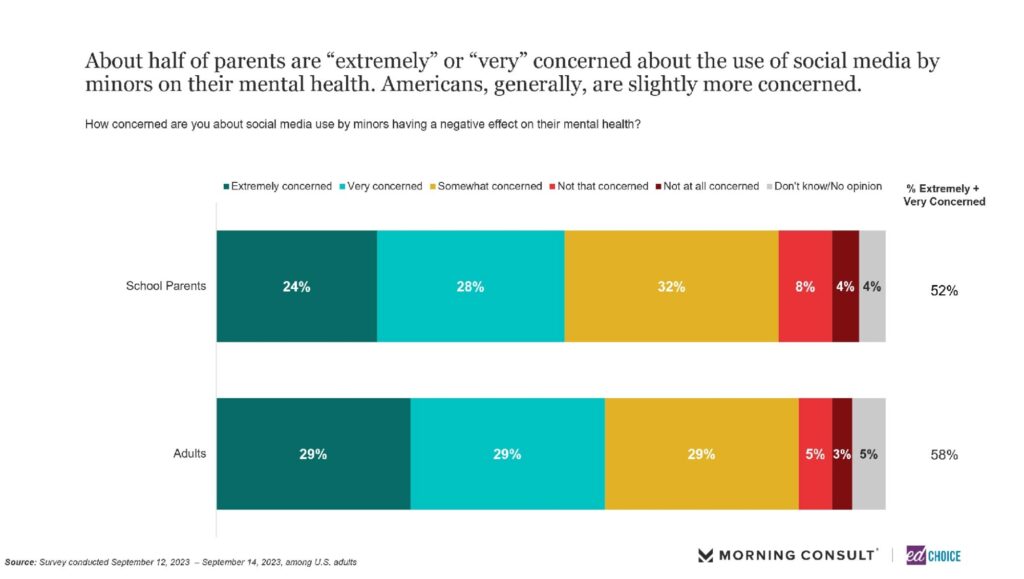
2. Adults support policies limiting social media use among minors. We asked adults about several potential policies to limit children’s social media usage both in and out of school. Of the provided options, adults are most supportive of requiring children to leave cell phones in secure locations during school hours and laws requiring parental consent for minors to access social media. Each of these policies garnered support from 69 percent of the general public. A slimmer majority of adults also support banning social media platforms from K-12 schools and allowing school districts to choose which social media platforms students can access during school hours.
3. One in three parents report that their child missed more than five whole days of school last year. As a counterpart to a question posed in our most recent teens survey, we asked parents the following question: Thinking about last school year, how many WHOLE DAYS of school did your child miss and was absent?
More than half of school parents (55%) said their child missed between 0-5 days of school during the previous year. Roughly, 1 in 5 parents said their child missed 6-10 days, and about 8 percent responded that their child missed 11+ school days. Low income and small-town parents were most likely to have a child who missed more than 10 days of school. Black and middle-income parents were least likely to report that their child missed more than 10 days.
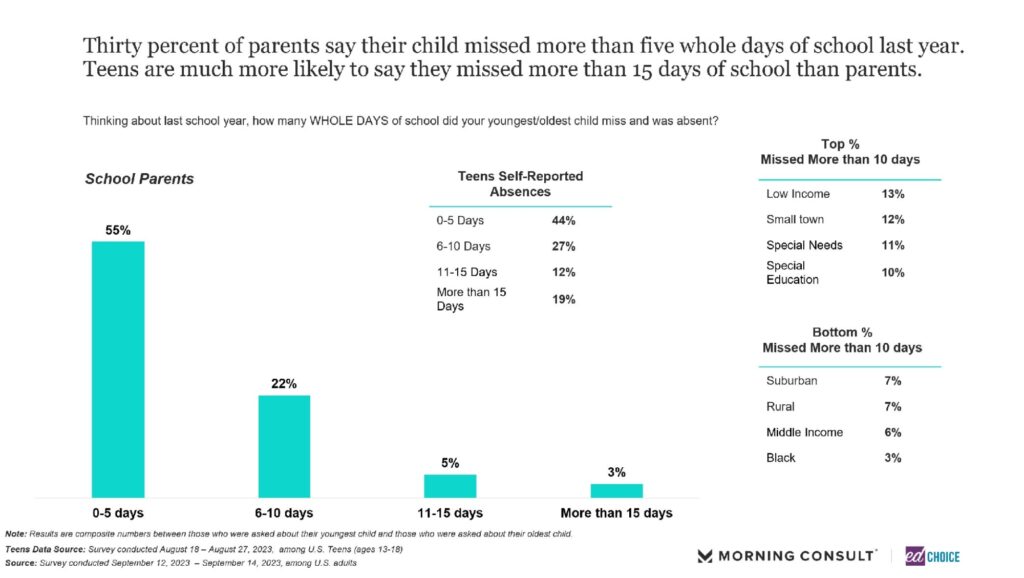
4. Nearly 60 percent of parents say their child’s school provides mental health services to those who need them. Charter and private school parents are much more likely to have these services available at their child’s school. About 3 in 4 private and charter school parents say that their child’s school offers mental health services. Among parents whose child’s school does not provide mental health services, just over half (53%) expressed wanting this type of support.
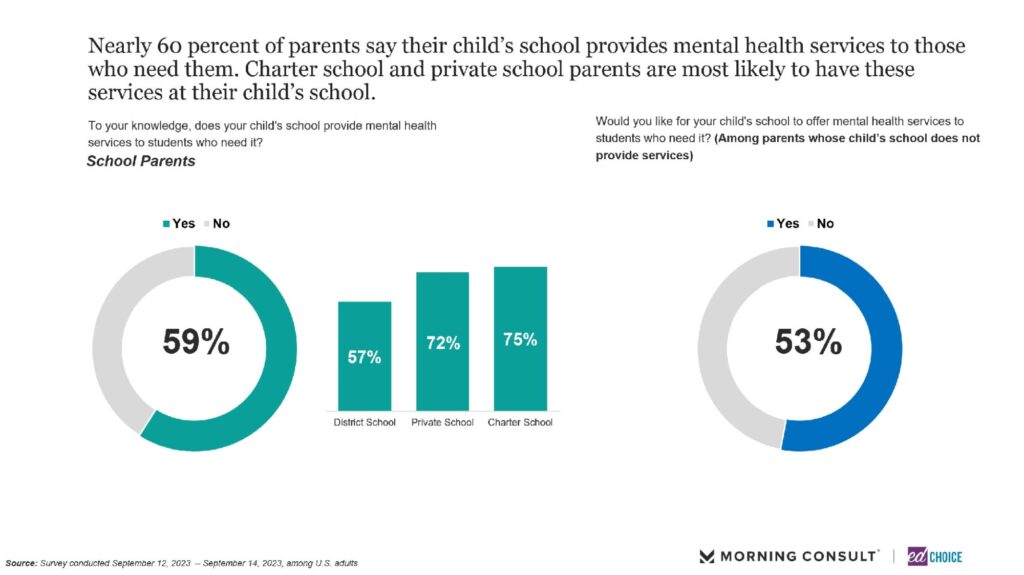
5. Parental concern about violent intruders at school remains high. In September, more than half (52%) of school parents said they were extremely or very concerned about a violent intruder entering their child’s school. That number has increased slightly since August, when 50 percent of parents expressed such concern, indicating that about half of parents continue to be worried about threats to their children’s school safety.
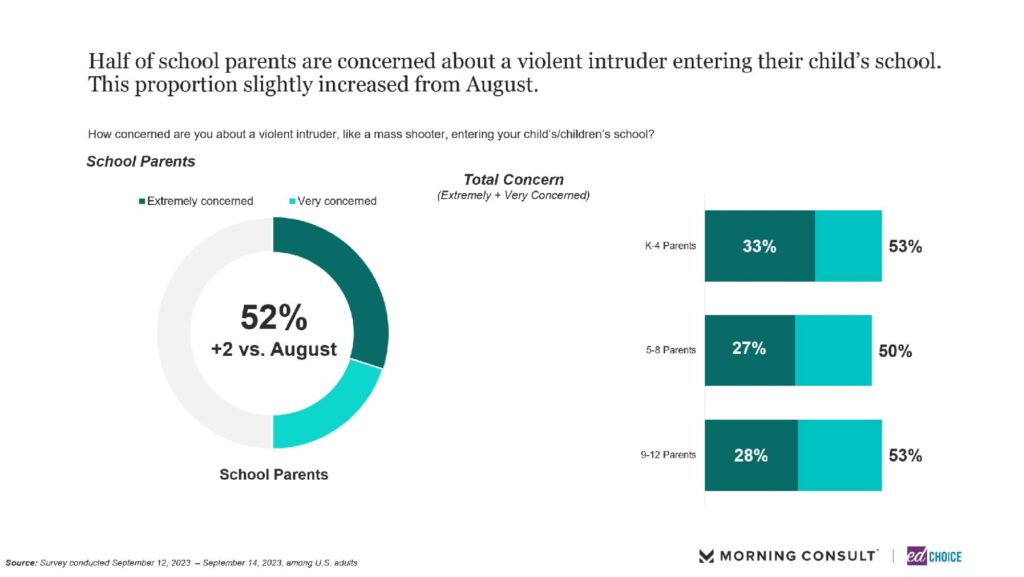
6. Despite these issues, the public’s views about the direction of K-12 education have improved since August. While the general population is consistently less positive about K-12 education than school parents, in September they grew more optimistic about education across the board, with 28 percent saying K-12 education is heading in the right direction nationwide and 39 percent at the local school district level. This marks the first substantial shift in public opinion since last year in September 2022. By contrast, parents’ feelings about the direction of K-12 education dipped slightly in September, though over half (55%) still express a positive view of local education level with August figures.
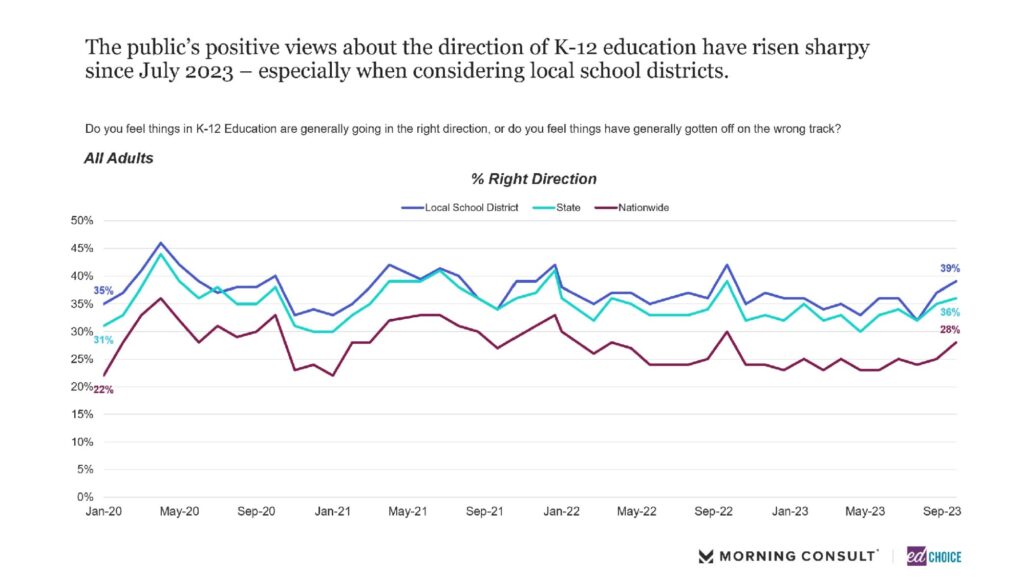
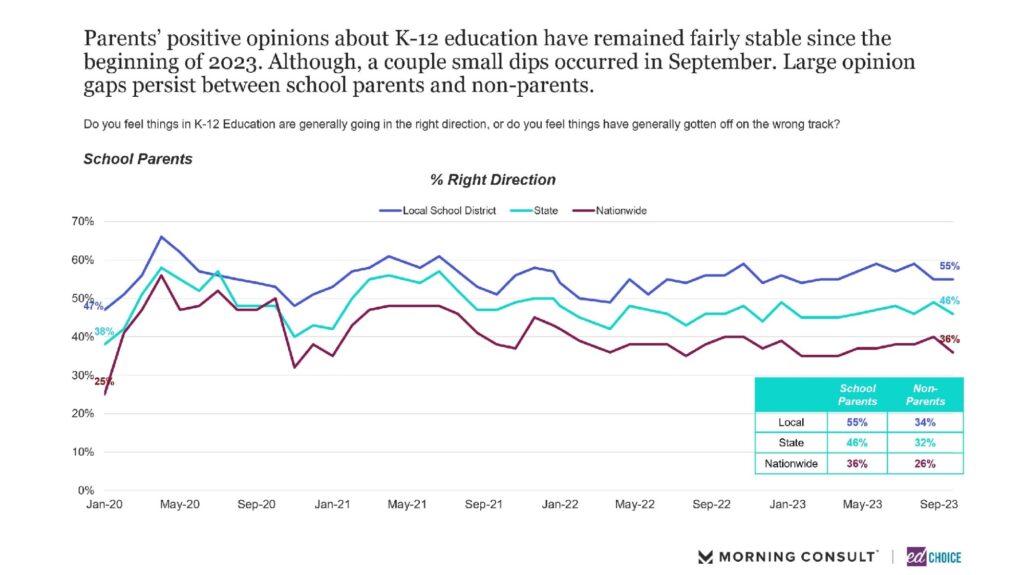
7. Americans remain steadily supportive of school choice policies. As in our past surveys, we asked respondents about their support and opposition for ESAs, vouchers, charter schools, and open enrollment. Holding steady with trends since March, the general public’s support for each school choice policy remains above 60 percent. Among school parents, support for these policies continues to hover around 70 percent.
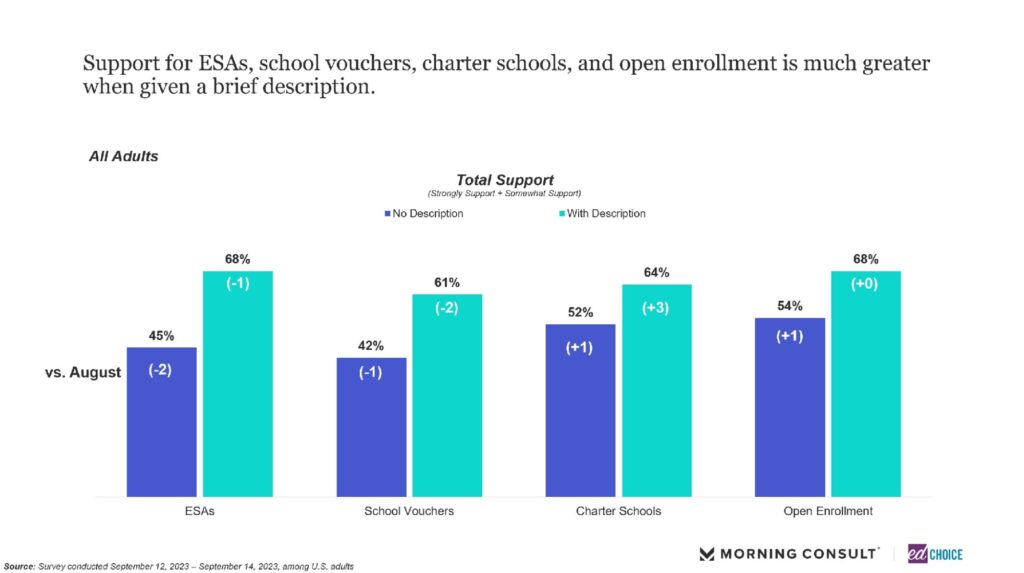
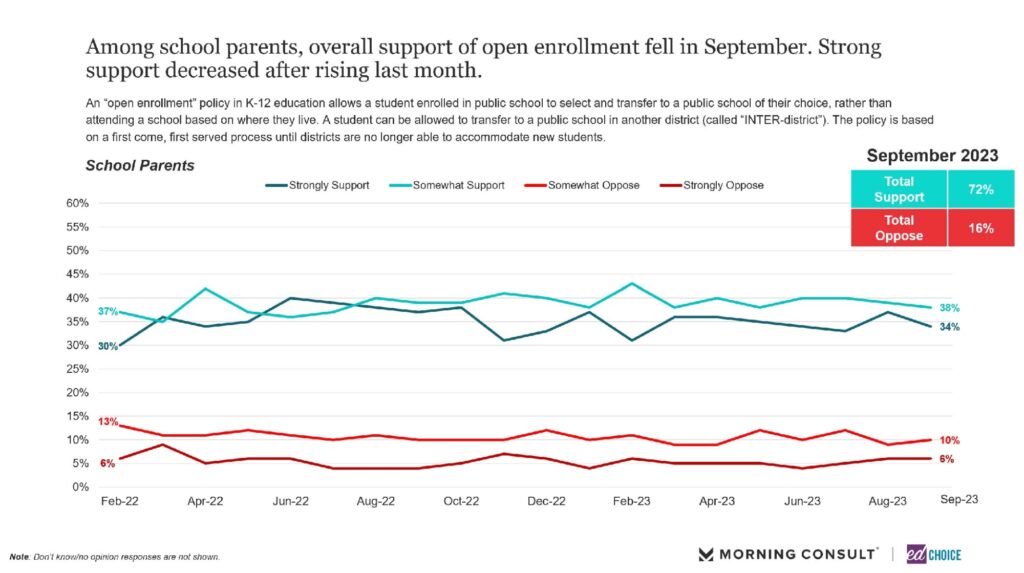
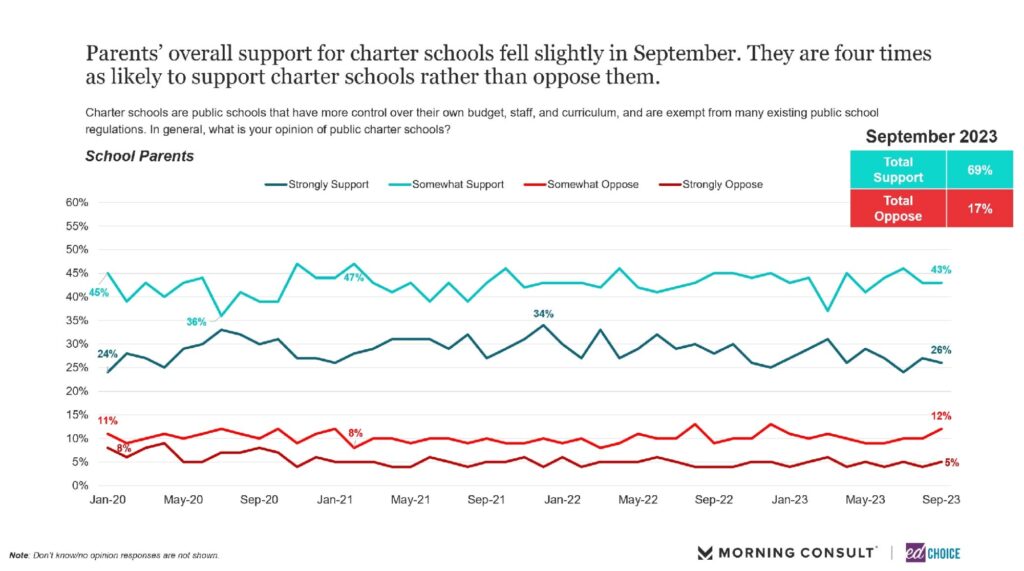
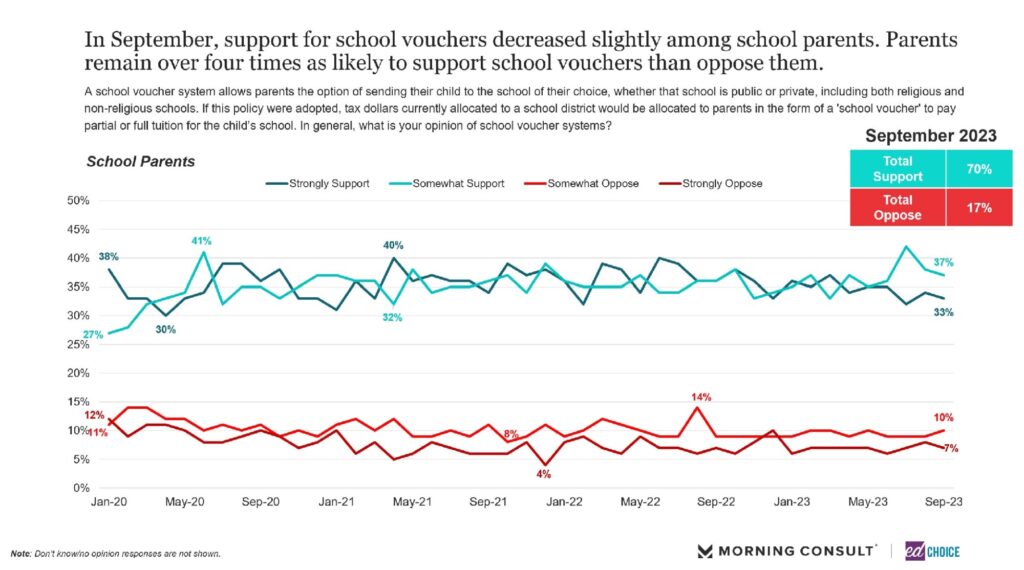
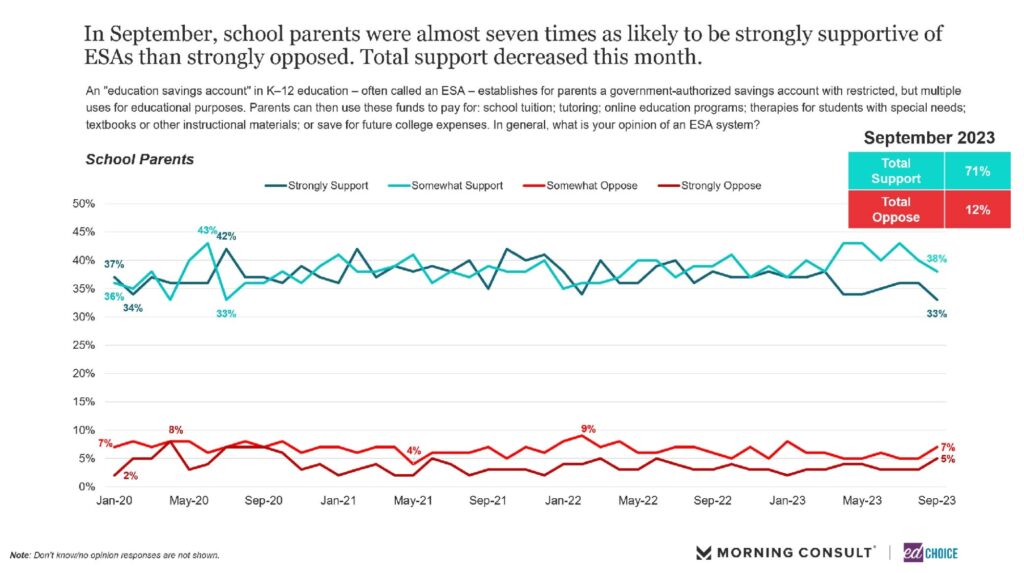
Visit the EdChoice Public Opinion Tracker site to access past reports, crosstabs, and questionnaires. We update our national and state dashboards every month. We also provide a more in-depth description of our research and survey methods.
Our K–12 education polls archive is updated on a rolling basis, roughly a few times each month. Please don’t hesitate to let us know if we are missing any surveys, or if there are accidental errors.




